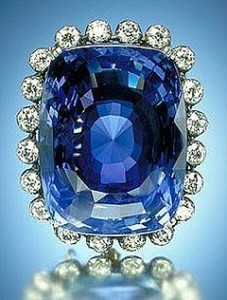September 9 is the 253rd day of the year.
National Hug Your Boss Day
National “I Love Food” Day!
National Wiener Schnitzel Day A Wiener Schnitzel is a veal cutlet coated in bread and then pan-fried. This renowned dish is considered an Austrian delicacy in its beautiful capital, Vienna.
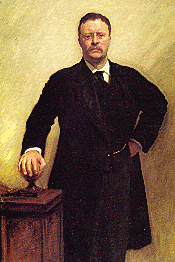 Teddy Bear Day: From Holiday Insights
Teddy Bear Day: From Holiday Insights
During the early 1900s, President Theodore Roosevelt was in office as President of the United States. He was a hunter. While hunting in Mississippi in 1902, he refused to shoot a small bear. The Washington Post picked up on this story, and made a cartoon of the event. Toy store owners, Morris and Rose Michtom, wrote to President Roosevelt for permission to call their stuffed animals “Teddy Bears”. Teddy bears became wildly popular. Their company went on to become the Ideal Toy Company, one of the largest toy companies in the world.
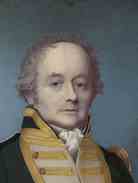 1754 William Bligh was born. He became captain of the English ship, Bounty, and while sailing to Tahiti to bring back breadfruit trees, the most famous mutiny in history took place.
1754 William Bligh was born. He became captain of the English ship, Bounty, and while sailing to Tahiti to bring back breadfruit trees, the most famous mutiny in history took place.
On this date in 1776 the Continental Congress officially named its new union of sovereign states the United States.
In 1791 – Washington, D.C., the capital of the United States, was named after President George Washington.
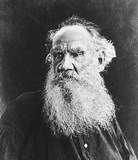 Birthday of Count Leo Tolstoy (September 9, 1828), Russian novelist famous for “War and Peace” and “Anna Karenina”
Birthday of Count Leo Tolstoy (September 9, 1828), Russian novelist famous for “War and Peace” and “Anna Karenina”
The Compromise of 1850 provisions included:
- Texas surrendered its claim to New Mexico, as well as its claims north of the Missouri Compromise Line. It retained the Texas Panhandle and the federal government took over the state’s public debt.
- California was admitted as a free state with its current boundaries.
- The South prevented adoption of the Wilmot Proviso that would have outlawed slavery in the new territories, and the new Utah Territory and New Mexico Territory were allowed, under the principle of popular sovereignty, to decide whether to allow slavery within their borders. In practice, these lands were generally unsuited to plantation agriculture and their settlers were uninterested in slavery.
- The slave trade (but not slavery altogether) was banned in the District of Columbia.
- A more stringent Fugitive Slave Law was enacted.
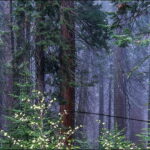 California Admission Day, on September 9, 1850 becoming the thirty-first state
California Admission Day, on September 9, 1850 becoming the thirty-first state
- Capital: Sacramento
- Nickname: Golden State
- Bird: California Valley Quail
- Flower: Golden poppy
- Tree: California Redwood
- Motto: Eureka! I Have Found It
See our page California for more interesting facts and trivia about California.
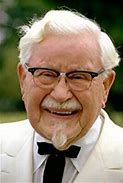 1890 Harland Sanders was born near Henryville, Indiana. Founder of Kentucky Fried Chicken fast food restaurant chain.
1890 Harland Sanders was born near Henryville, Indiana. Founder of Kentucky Fried Chicken fast food restaurant chain.
September 10, 1898: 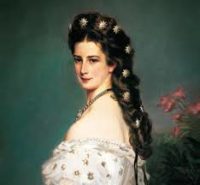 Elisabeth of Bavaria, Empress of Austria was stabbed to death by Italian anarchist Luigi Lucheni at Lake Geneva, Switzerland.
Elisabeth of Bavaria, Empress of Austria was stabbed to death by Italian anarchist Luigi Lucheni at Lake Geneva, Switzerland.
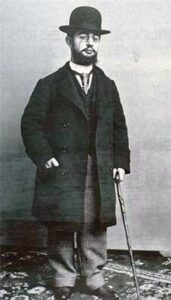 1901 Henri de Toulouse-Lautrec died. French artist who documented Parisian night life in the 1890s with his insightful posters. For examples of his art, see Wikiart.
1901 Henri de Toulouse-Lautrec died. French artist who documented Parisian night life in the 1890s with his insightful posters. For examples of his art, see Wikiart.
From Today in Science
NBC
In 1926, the National Broadcasting Company (NBC) was created by the Radio Corporation of America (RCA), shortly after the acquistion (May 1926) of the radio network operations of AT&T, which had decided to withdraw from radio. The new NBC network was publicized with full-page ads in many publications. The new network’s debut broadcast was transmitted on 15 Nov 1926. The network assets bought from AT&T with stations in major cities of several states became the NBC-Red network (a designation reflecting its origin when the inter-city circuit charts were marked with telephone links between network radio stations in red pencil. The smaller existing network of the buyer became NBC-Blue.
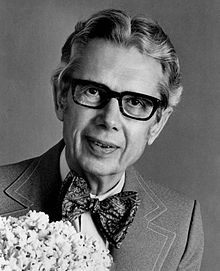 1995 Orville Redenbacher died. Founder of gourmet popcorn company.
1995 Orville Redenbacher died. Founder of gourmet popcorn company.

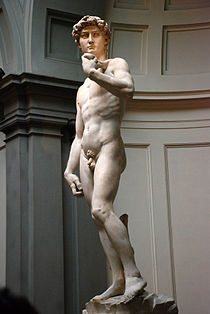 1504 – Michelangelo’s David is unveiled in Florence. For other works by Michelangelo, see
1504 – Michelangelo’s David is unveiled in Florence. For other works by Michelangelo, see 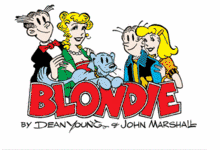 1930 1st appearance of comic strip “Blondie” by Chic Young. On February 17, 1933, after much fanfare and build-up, Blondie Boopadoop and Dagwood Bumstead were married.
1930 1st appearance of comic strip “Blondie” by Chic Young. On February 17, 1933, after much fanfare and build-up, Blondie Boopadoop and Dagwood Bumstead were married. John B Gruelle patented Raggedy Ann doll on September 7, 1915.
John B Gruelle patented Raggedy Ann doll on September 7, 1915. 1936 – The last surviving member of the thylacine species, Benjamin, dies alone in her cage at the Hobart Zoo in Tasmania. (Its sex has never been confirmed). The thylacine was the largest known carnivorous marsupial of modern times. It is commonly known as the Tasmanian tiger (because of its striped back) or the Tasmanian wolf. Native to continental Australia, Tasmania and New Guinea.
1936 – The last surviving member of the thylacine species, Benjamin, dies alone in her cage at the Hobart Zoo in Tasmania. (Its sex has never been confirmed). The thylacine was the largest known carnivorous marsupial of modern times. It is commonly known as the Tasmanian tiger (because of its striped back) or the Tasmanian wolf. Native to continental Australia, Tasmania and New Guinea.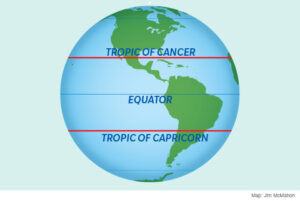
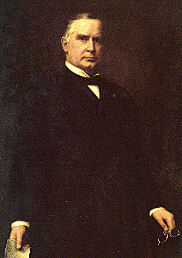 was shot by anarchist Leon Czolgosz at Pan American Exposition in Buffalo NY. Two shots were fired. The first deflected off a button and was easily found and removed. The second however was fatal. The newly-developed X-ray machine was displayed at the fair, but doctors were reluctant to use it on McKinley to search for the bullet because they did not know what side effects it may have had on him. Also, ironically, the operating room at the exposition’s emergency hospital did not have any electric lighting, even though the exteriors of many of the buildings at the extravagant exposition were covered with thousands of light bulbs. Doctors used a pan to reflect sunlight onto the operating table as they treated McKinley’s wounds. McKinley eventually went into shock. He died from his wounds early on the morning of September 14th.
was shot by anarchist Leon Czolgosz at Pan American Exposition in Buffalo NY. Two shots were fired. The first deflected off a button and was easily found and removed. The second however was fatal. The newly-developed X-ray machine was displayed at the fair, but doctors were reluctant to use it on McKinley to search for the bullet because they did not know what side effects it may have had on him. Also, ironically, the operating room at the exposition’s emergency hospital did not have any electric lighting, even though the exteriors of many of the buildings at the extravagant exposition were covered with thousands of light bulbs. Doctors used a pan to reflect sunlight onto the operating table as they treated McKinley’s wounds. McKinley eventually went into shock. He died from his wounds early on the morning of September 14th.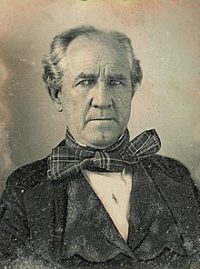 Sam Houston was elected as the first president of the Republic of Texas in 1836.
Sam Houston was elected as the first president of the Republic of Texas in 1836.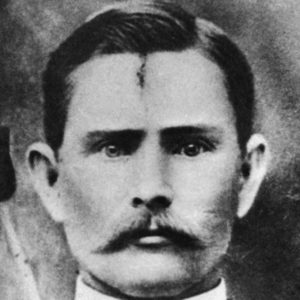 Birthday of Jesse James (September 5, 1847), American outlaw, gang leader, bank robber, train robber, and murderer.
Birthday of Jesse James (September 5, 1847), American outlaw, gang leader, bank robber, train robber, and murderer.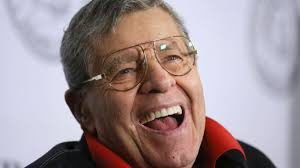 Jerry Lewis hosted his first Muscular Dystrophy telethon in 1952; it raised $15,000. In 2010 the telethon raised $61 million.
Jerry Lewis hosted his first Muscular Dystrophy telethon in 1952; it raised $15,000. In 2010 the telethon raised $61 million.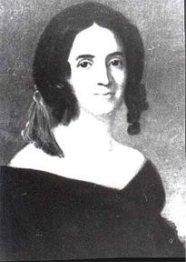 Birthday of Sarah Childress Polk (September 4, 1803), wife of
Birthday of Sarah Childress Polk (September 4, 1803), wife of 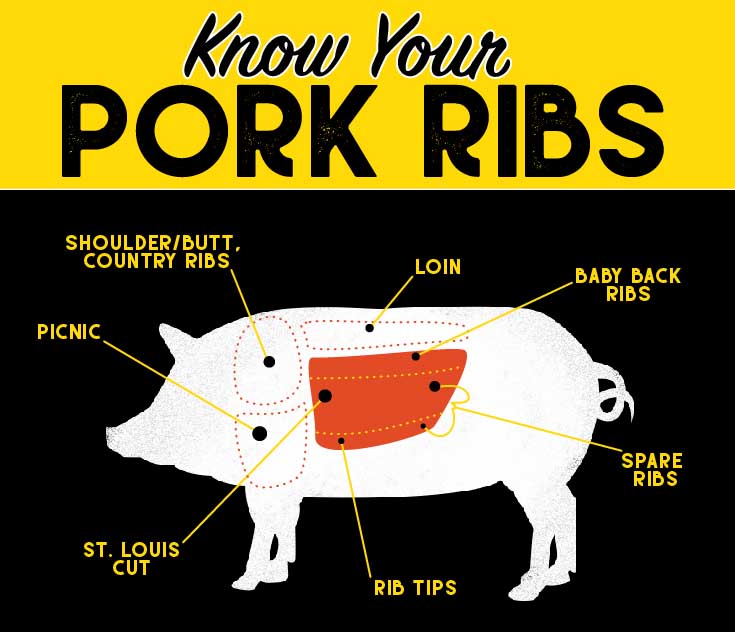 National Baby Back Ribs Day Baby back ribs (also back ribs or loin ribs) are taken from the top of the rib cage between the spine and the spare ribs, below the loin muscle. They have meat between the bones and on top of the bones, and are shorter, curved, and sometimes meatier than spare ribs. Spare ribs, also called “spareribs” or “side ribs”, are taken from the belly side of the rib cage, below the section of back ribs and above the sternum (breast bone). St. Louis style ribs (or St. Louis cut spare ribs) have had the sternum bone, cartilage, and rib tips removed.
National Baby Back Ribs Day Baby back ribs (also back ribs or loin ribs) are taken from the top of the rib cage between the spine and the spare ribs, below the loin muscle. They have meat between the bones and on top of the bones, and are shorter, curved, and sometimes meatier than spare ribs. Spare ribs, also called “spareribs” or “side ribs”, are taken from the belly side of the rib cage, below the section of back ribs and above the sternum (breast bone). St. Louis style ribs (or St. Louis cut spare ribs) have had the sternum bone, cartilage, and rib tips removed.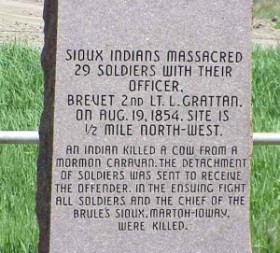
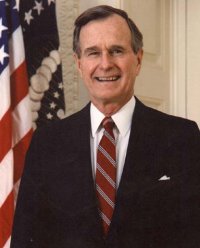 1944
1944 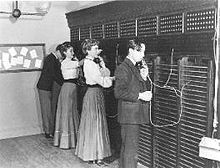 Emma M. Nutt Day, the first woman telephone operator. In January 1878, the Boston Telephone Dispatch Company had started hiring boys as telephone operators, starting with George Willard Croy. Boys (reportedly including Nutt’s husband had been very successful as telegraphy operators, but their attitude (lack of patience) and behavior (pranks and cursing) were unacceptable for live phone contact, so the company began hiring women operators instead. A few hours after Nutt started working, her sister Stella became the world’s second female telephone operator, also making the pair the first two sister telephone operators in history.
Emma M. Nutt Day, the first woman telephone operator. In January 1878, the Boston Telephone Dispatch Company had started hiring boys as telephone operators, starting with George Willard Croy. Boys (reportedly including Nutt’s husband had been very successful as telegraphy operators, but their attitude (lack of patience) and behavior (pranks and cursing) were unacceptable for live phone contact, so the company began hiring women operators instead. A few hours after Nutt started working, her sister Stella became the world’s second female telephone operator, also making the pair the first two sister telephone operators in history.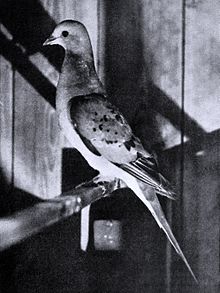 Martha, the last
Martha, the last 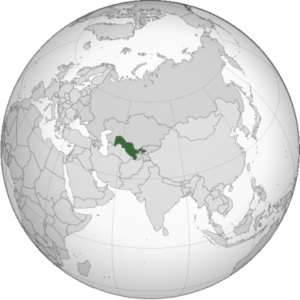 Uzbekistan became independent from the Soviet Union on this date in 1991.
Uzbekistan became independent from the Soviet Union on this date in 1991.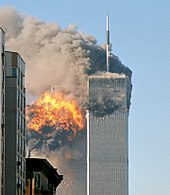 Since 2001, the month is remembered for the events of 9-11 and the destruction of the
Since 2001, the month is remembered for the events of 9-11 and the destruction of the 

